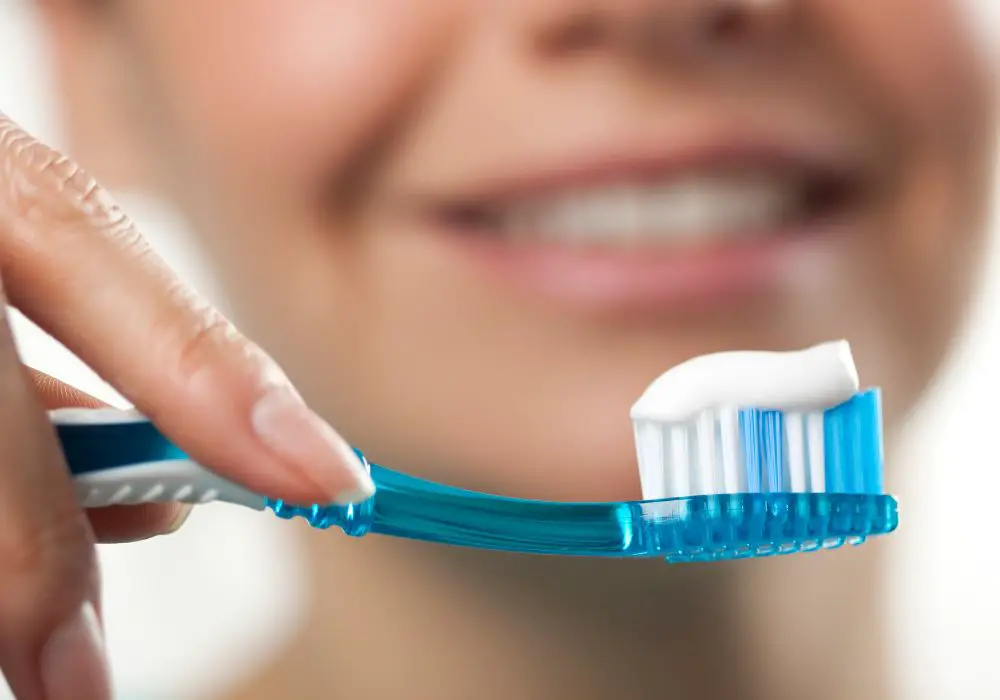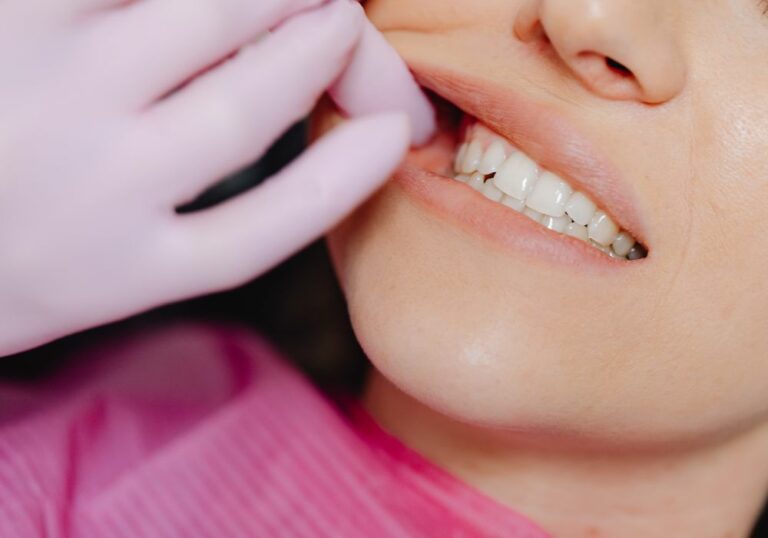What is teeth remineralization and why is it important?
Teeth remineralization is the process of restoring minerals like calcium and phosphate to teeth that have been demineralized by acid attacks. This helps strengthen and protect the teeth from further decay. Remineralization is important because it can:
- Stop and even reverse early tooth decay before it progresses and requires fillings.
- Make teeth less sensitive by rebuilding enamel.
- Avoid more invasive dental treatments like crowns or implants.
- Strengthen overall tooth structure and improve appearance.
Keeping your teeth remineralized is crucial for oral health. Below are some of the fastest ways to remineralize teeth at home.
Fast Remineralization Methods

1. Use Fluoride
Fluoride is very effective at remineralizing initial lesions and decay by attracting calcium and phosphate ions. Some ways to get more fluoride:
- Use a fluoride toothpaste when you brush. Look for kinds with stannous fluoride.
- Have fluoride treatments at the dentist. These use trays filled with concentrated fluoride gel.
- Use an alcohol-free fluoride mouthwash daily.
- Get fluoride varnish treatments applied to vulnerable areas of teeth.
- Drink fluoridated water or use fluoride supplements if your water supply isn’t fluoridated.
Fluoride works best in conjunction with a healthy, low-acid diet.
2. Eat Remineralizing Foods
You can also encourage remineralization by eating certain foods and nutrients daily:
Calcium-rich foods – dairy products like milk, yogurt, and cheese provide calcium. Calcium is essential for remineralization.
Phosphorus foods – meat, fish, eggs, nuts, seeds, and grains supply phosphorus to rebuild tooth enamel.
Vitamin D foods – salmon, tuna, egg yolks, and fortified dairy have vitamin D to help utilize calcium.
Probiotics – yogurt, kefir, and fermented foods have good bacteria that create an alkaline environment, reducing acidity in the mouth.
Xylitol – this natural sweetener found in fruits and vegetables inhibits decay-causing bacteria in the mouth, helping prevent demineralization. Consider xylitol mints or gum.
Green tea – the antioxidants in green tea may aid in remineralization by preventing free radical damage. Drink 1-2 cups per day.
Cheese – eating aged hard cheeses like parmesan after meals increases saliva flow and brings calcium, phosphate, and casein to teeth. The casein helps form tooth-protecting biofilm.
3. Use Remineralizing Toothpastes and Mouthwashes
Specialized oral care products containing extra minerals and ingredients that promote remineralization are available without prescription. Consider using:
- Toothpaste with nanohydroxyapatite – this compound derived from eggshells fills microscopic gaps in enamel. Brands like Sensodyne Pronamel have it.
- Toothpaste with NovaMin – this bioactive glass delivers calcium and phosphate. Brands like Sensodyne Repair & Protect include it.
- Tooth mousse – these creamy pastes contain Recaldent, a milk-derived protein that provides amorphous calcium phosphate for enamel. Brands like MI Paste or Tooth Mousse.
- Alkaline mouthwashes – rinses like BIOTENE and CloSYS maintain an alkaline oral pH to support remineralization.
Use as directed in combination with regular fluoride toothpaste for added remineralizing effects.
4. Improve Your Oral Hygiene Habits
Good oral hygiene limits acid attacks on enamel so teeth can remineralize. Try these tips:
- Brush gently twice a day with fluoride toothpaste. Don’t brush right after eating.
- Floss once daily to clear plaque from between teeth.
- Use an antibacterial mouthwash to reduce decay-causing bacteria.
- Cut down on snacking and acidic drinks like soda that demineralize enamel.
- Have regular dental cleanings every 6 months to remove harmful plaque deposits.
- Consider orthodontic appliances if crooked teeth are hard to keep clean.
Developing better oral hygiene habits prevents decay and creates an environment for enamel to rebuild minerals.
5. Get Dental Treatments
Your dentist also offers professional remineralizing treatments that can quickly help reverse tooth decay:
- Sealants – thin coatings painted on chewing surfaces of molars to prevent decay from starting. They last 5-10 years.
- In-office fluoride treatments – stronger and more concentrated fluoride gels or foams applied with trays for longer contact with teeth.
- Calcium phosphate rinses – solutions like Enamelon liquid calcium that contain calcium and phosphate to renew minerals. Used for a few minutes daily at home.
- Resin infiltrations – special dental resins painted on early lesions to stabilize damage and trigger remineralization.
- Remineralizing fillings – materials like glass ionomer cements that release fluoride and minerals into surrounding tooth structure.
Talk to your dentist about recommended options to actively reharden and remineralize tooth enamel. Professional treatments combined with good at-home care provide the fastest results.
When Will I See Results from Remineralization?

It can take anywhere from a few weeks to several months to visibly notice teeth remineralizing depending on the severity of enamel damage. Early demineralization like white spot lesions may reharden faster than more advanced decay into dentin.
Be patient and consistent using the remineralizing approaches together for best effects. Avoiding foods and habits that demineralize teeth will also help them regenerate minerals quicker.
See your dentist regularly so they can monitor your enamel health and remineralization progress over time. Additional or stronger treatments may be advised based on examination and x-ray findings at dental visits.
Tips for Maintaining Remineralized Teeth
Once your teeth are successfully remineralized, keeping them that way takes continued care:
- Maintain a low sugar, low acid diet that avoids enamel erosion
- Brush with fluoride toothpaste and floss daily
- Use fluoride and remineralizing rinses and pastes regularly
- Get dental cleanings and fluoride treatments every 6 months
- Avoid habits like teeth grinding that can weaken enamel
- Wear a nightguard if you have bruxism or clenching
- Monitor teeth closely and address any new demineralization promptly
Staying diligent with preventive oral hygiene and avoiding damage will help keep remineralized teeth intact. Tell your dentist right away if you notice any new tooth sensitivity, white spots, or decay. Catching demineralization early makes rehardening teeth faster and easier.
Frequently Asked Questions
1. What foods remineralize teeth the most?
Some top foods for remineralizing teeth include dairy products, spinach, carrots, celery, yogurt, cheese, sesame seeds, garlic, shrimp, oranges, broccoli, nuts, eggs, and fish. These provide important minerals like calcium, phosphate, magnesium, and vitamin D.
2. Can demineralized enamel be repaired?
Yes, demineralized areas of enamel that haven’t yet progressed to cavities can be repaired through remineralization. Enamel can regain lost minerals from fluoride, calcium phosphate rinses, remineralizing toothpaste, and professional dental treatments.
3. How much fluoride is needed for remineralization?
Using fluoride toothpaste twice daily provides a moderate amount of fluoride for remineralization. Additional fluoride like regular dental varnish treatments, prescription strength gel/toothpaste, fluoridated water, and fluoride mouthwashes ensures you get sufficient fluoride for rebuilding enamel.
4. Is remineralization permanent?
Remineralized teeth can become demineralized again if not cared for properly. Avoiding sugary and acidic foods, maintaining good oral hygiene, and using preventive treatments helps makes remineralization more lasting. Continued remineralizing efforts are needed to strengthen enamel long-term.
5. How long does it take MI Paste to remineralize teeth?
MI Paste used regularly can start remineralizing and reducing sensitivity in teeth within 1-2 weeks, but takes 2-4 months for full effects. More severe demineralization may take longer to show improvement so consistent daily use for many months is important.






